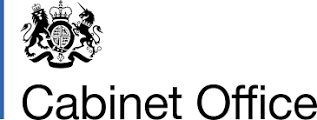PRESS RELEASE : Civil servants given tools to spot economic abuse victims [January 2023]
The press release issued by the Cabinet Office on 16 January 2023.
- New toolkit to help frontline public sector staff identify and signpost support for economic abuse victims
- Victims can have benefits controlled or be forced by their abuser to accrue debt to government
- Around 16% of adults are estimated to have experienced economic abuse
Frontline government staff are to be trained to identify signs of economic abuse, so they can support vulnerable people and prevent them accumulating debt, the Cabinet Office has announced today.
Economic abuse, which domestic violence charity Refuge estimates 16% of adults in the UK have experienced, is when an individual’s ability to acquire, use and maintain economic resources are taken away by someone else in a coercive or controlling way.
The Economic Abuse Toolkit is made up of clear guidance which can be used by frontline staff, across departments including HMRC and DWP, to help them identify and support vulnerable individuals who are suffering from economic abuse.
This includes advice on spotting the signs and creating an appropriate environment for victims to disclose their experiences.
Staff will be trained on how to handle any declarations sensitively and then ensure victims get access to support, helping to ensure vulnerable people don’t accumulate debt to the government.
Minister for the Cabinet Office Jeremy Quin said:
Economic abuse is an abhorrent crime and we are determined to use all levers of government to stamp it out.
It is a problem that is often hard to spot and this new toolkit will give staff on the front line the tools to help identify and protect vulnerable people.
Through helping people access the support they need, this toolkit will help us tackle this crime and get victims out of abusive relationships and into safe spaces.
In a public sector setting, forms of economic abuse can include:
- Abusers preventing victims claiming support which they are entitled to in order to make them financially dependent
- Victims being unable to communicate their financial position and therefore not being able to access government support
- Victims being unable to claim for support due to the abuser putting everything in their own name
- Abusers putting bills to government in the victim’s name and then refusing to pay
- Abusers gaining access to financial information regarding the victim without adequate consent
Specialist charity Surviving Economic Abuse (SEA), which was one of the organisations which contributed to the Toolkit, registered an 85% increase in traffic to their website during the pandemic.
SEA research also found seven in ten front-line professionals reported the number of victims of economic abuse coming to their organisation for help had increased since the start of the pandemic. By the end of the first lockdown, SEA found one in five women were planning to seek help around welfare benefits which could put more vulnerable people at risk.
Tackling domestic abuse is a government priority and improving the response to economic abuse is integral to this. For the first time in history, economic abuse is now recognised in law as part of the statutory definition of domestic abuse included in the Domestic Abuse Act 2021. This is in recognition of the devastating impact it can have on victims’ lives.
Minister for Safeguarding, Sarah Dines said:
Domestic abuse can come in many forms, and economic abuse is a particularly insidious one, with significant and complex impacts on victims.
Following the passage of the Domestic Abuse Act and the publication of our Domestic Abuse Plan, I am committed to building on this momentum to improve the response to economic abuse. The public sector and its frontline services have a key role to play in this.
Plans are underway for departments to integrate the guidance into their training for frontline workers, but it’s hoped the Toolkit will be utilised by other parts of the public sector including local councils.
Money Advice Plus CEO Karen Perrier said:
Victim-survivors often find themselves with multiple debts from multiple sources. Given this drastic picture, it is vital that both public and private sectors provide informed support to victim-survivors so they can move forward with economic safety and stability.
The development of the Economic Abuse Toolkit will enable government staff to support victim-survivors with greater confidence and Money Advice Plus was happy to bring their expertise to its development.
The Toolkit was created by the Fairness Group, a collaboration led by the Cabinet Office’s Government Debt Management Function which brings together central and local government, debt advice sector and the debt collection industry.


